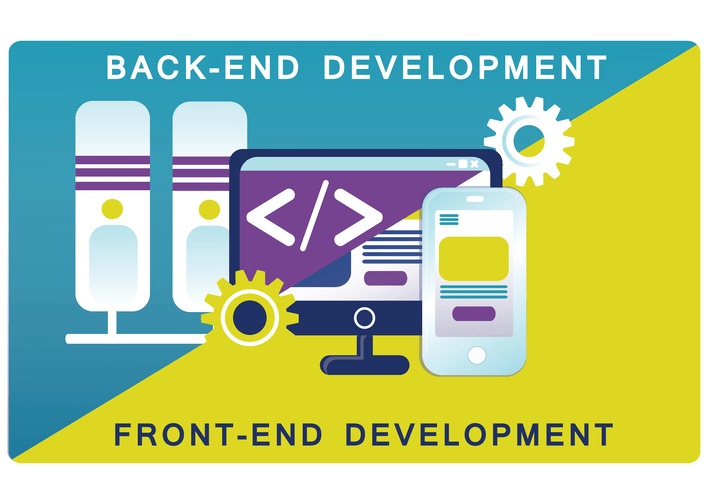Top 18 AI Use Cases in Healthcare Industry in 2023
The needle-in-a-haystack nature of drug discovery has led to staggering and ever-rising R&D costs. Machine learning applications slash the time it takes to identify promising molecule candidates, helping researchers focus their efforts where it counts. Highly valuable information can sometimes get lost among the forest of trillions of data points. Additionally, Custom AI Solutions Development the inability to connect important data points slows the development of new drugs, preventative medicine and proper diagnosis. Twill describes itself as “The Intelligent Healing Company,” delivering digital healthcare products and partnering with enterprises, pharma companies and health plans to develop products using its Intelligent Healing Platform.

Like other ML technologies, Corti does not search for particular signals, but it trains itself by listening to many calls in order to detect crucial factors. MedTech devices such as 3D bioprinters with smart AI chips powering these machines to work round the clock and produce tissues on-demand could soon be the new normal towards bioprinting in tough environments like space. Pharmaceutical drug development cycles are becoming more efficient with the use of AI in early-stage drug development studies, moving towards fast-tracking to market critical lifesaving drugs that are under development.
Who is Supporting Family Caregivers?
Many industries have benefited from standards that support a level of guidance around product or service development, production and distribution. The International Organization for Standardization (ISO) has established numerous management system standards that set requirements to help organizations manage their policies and processes to achieve specific objectives. It’s also worth considering that machines might have potentially serious flaws in their judgements. Depending on the AI tools used, they additionally may lack the capability to explain the reasons for a particular decision in a manner that patients and doctors can trust. Finally, and least visibly to the public, AI can be used to allocate resources and shape business.

Deep learning is also increasingly used for speech recognition and, as such, is a form of natural language processing (NLP), described below. Unlike earlier forms of statistical analysis, each feature in a deep learning model typically has little meaning to a human observer. As a result, the explanation of the model’s outcomes may be very difficult or impossible to interpret. Tempus uses AI to sift through the world’s largest collection of clinical and molecular data to personalize healthcare treatments. Twin Health’s holistic method seeks to address and potentially reverse chronic conditions like Type 2 Diabetes through a mixture of IoT tech, AI, data science, medical science and healthcare.
Pioneering AI Solutions to Reinforce Healthcare Services
Our team includes experts on enterprise software platforms, US government programs, digital innovation, and business operations. Explore the myriad benefits telehealth offers to healthcare providers and patients alike. From enhanced convenience and improved privacy to streamlined workflows and elevated patient satisfaction, find out how telehealth is reshaping the future of healthcare delivery. The 1980s and 1990s brought the proliferation of the microcomputer and new levels of network connectivity. When implementing AI in healthcare in 2023 and beyond, providers should properly incorporate AI solutions into workflows, Schibell suggests.
Despite the slow uptake of AI in healthcare, health insurer Optum revealed in a December 2021 survey that 85 percent of healthcare executives have an AI strategy, and almost half of executives surveyed now use the technology. Brian T. Horowitz is a writer covering enterprise IT, innovation and the intersection of technology and healthcare. Use image data for modeling, with the ability to combine additional data types with your image data including text, tabular and audio data, with out-of-the-box access to all of the recent CNN-architectures and GPU accelerated training. AI can directly address the various challenges that payers currently face, whether it’s managing the constantly changing landscape of care to improve member health or understanding claims on a granular level.
Public Health
Their combination appears to promise greater accuracy in diagnosis than the previous generation of automated tools for image analysis, known as computer-aided detection or CAD. AI in healthcare is an umbrella term to describe the application of machine learning (ML) algorithms and other cognitive technologies in medical settings. In the simplest sense, AI is when computers and other machines mimic human cognition, and are capable of learning, thinking, and making decisions or taking actions.
- ML is used to collect pertinent information in the medical history and record of treatment to further aid in decision-making.
- We put clear protocols in place on how to identify, evaluate, and mitigate AI-related risks.
- Likewise, AI can reduce the volume of tedious administrative tasks that often lead to burnout among healthcare professionals.
- The needle-in-a-haystack nature of drug discovery has led to staggering and ever-rising R&D costs.
- Since many cancers have a genetic basis, human clinicians have found it increasingly complex to understand all genetic variants of cancer and their response to new drugs and protocols.
- Babylon is on a mission to reengineer healthcare by shifting the focus away from caring for the sick to helping prevent sickness, leading to better health and less health-related expenses.
These technologies hold the promise of a transformative leap in our global health landscape, enabling us to counter medical challenges with unprecedented agility and accuracy. By harnessing AI and machine learning judiciously and responsibly, we can sculpt a future where quality healthcare is not a privilege for the few but a fundamental right for all. AI provides opportunities to reduce human error, assist medical professionals and staff, and provide patient services 24/7. As AI tools continue to develop, there is potential to use AI even more in reading medical images, X-rays and scans, diagnosing medical problems and creating treatment plans. As AI becomes more important in healthcare delivery and more AI medical applications are developed, ethical and regulatory governance must be established.
among AI healthcare companies
Studies show hospitals whose patients have positive experiences have higher profits, while negative reviews can lead to financial losses. The drug development industry is bogged down by skyrocketing development costs and research that takes thousands of human hours. Putting each drug through clinical trials costs an estimated average of $1.3 billion, and only 10 percent of those drugs are successfully brought to market. The company’s AI-enabled digital care platform measures and analyzes atherosclerosis, which is a buildup of plaque in the heart’s arteries. The technology is able to determine an individual’s risk of having a heart attack and recommend a personalized treatment plan. VirtuSense uses AI sensors to track a patient’s movements so that providers and caregivers can be notified of potential falls.
The company says its products use natural language processing and automated speech recognition to save users time, increase productivity and improve patient satisfaction. Valo uses artificial intelligence to achieve its mission of transforming the drug discovery and development process. With its Opal Computational Platform, https://www.globalcloudteam.com/ Valo collects human-centric data to identify common diseases among a specific phenotype, genotype and other links, which eliminates the need for animal testing. OSP Labs tailored healthcare AI platform can derive actionable insights from large, complex datasets at the scale required by healthcare enterprises.
Shaping Europe’s digital future
Cem’s work in Hypatos was covered by leading technology publications like TechCrunch and Business Insider. He graduated from Bogazici University as a computer engineer and holds an MBA from Columbia Business School. The purpose of this article is to shed light on healthcare-related AI application cases. We, therefore, anticipate that professionals will stay informed of new developments and take into account current technologies/applications when making strategic decisions. The greatest challenge to AI in these healthcare domains is not whether the technologies will be capable enough to be useful, but rather ensuring their adoption in daily clinical practice.
In the form of machine learning, it is the primary capability behind the development of precision medicine, widely agreed to be a sorely needed advance in care. Although early efforts at providing diagnosis and treatment recommendations have proven challenging, we expect that AI will ultimately master that domain as well. Given the rapid advances in AI for imaging analysis, it seems likely that most radiology and pathology images will be examined at some point by a machine. Speech and text recognition are already employed for tasks like patient communication and capture of clinical notes, and their usage will increase. But whether rules-based or algorithmic, using artificial intelligence in healthcare for diagnosis and treatment plans can often be difficult to marry with clinical workflows and EHR systems.
Simplified data management with Natural Language Processing
These notes are used alongside EHRs as a source to generate clinical insights for medical professionals, allowing for data-driven decisions to improve patient outcomes. Our Al-powered solutions address major challenges that are facing the healthcare field. Right now, the demand for diagnostic services is outpacing the supply of experts in the workforce.
